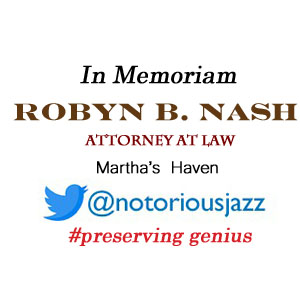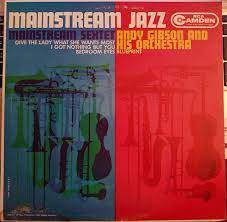
Daily Dose Of Jazz…
Prince Robinson was born in Portsmouth, Virginia on June 7, 1902. He learned to play clarinet as a teenager and after playing locally in Virginia, he moved to New York City, New York in 1923. Once settled Robinson quickly found work both performing and recording, with the Blue Rhythm Orchestra, June Clark, Duke Ellington, Billy Fowler, the Gulf Coast Seven, Fletcher Henderson, Lionel Howard, Clara Smith, and Elmer Snowden. He went on to tour South America with Leon Abbey’s group in 1927, and the following year became a member of McKinney’s Cotton Pickers.
The Thirties saw Prince working with Lil Armstrong, Willie Bryant, Blanche Calloway, Roy Eldridge, and Teddy Wilson accompanying Billie Holiday. His career continued in the 1940s, including work with Louis Armstrong, Lucky Millinder, and Benny Morton. In 1945 he joined Claude Hopkins’s band, remaining until 1952. Later in the decade he worked with Fletcher Henderson again and with Red Allen and Freddie Washington, in addition to leading his own ensemble in 1953.
His last recording was Mainstream Jazz by Andy Gibson and His Orchestra in 1959. He played a tenor saxophone solo on the theme Blueprint. Tenor saxophonist and clarinetist Prince Robinson transitioned on July 23, 1960 in New York City.
More Posts: bandleader,clarinet,history,instrumental,jazz,music,saxophone
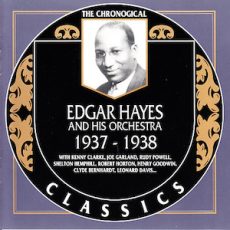
Daily Dose Of Jazz…
Edgar Junius Hayes was born on May 23, 1902 in Lexington, Kentucky and attended Wilberforce University, graduating with a degree in music. In 1922 he toured with Fess Williams, and formed his own group in 1924, the Blue Grass Buddies, in Ohio. The following year he played with Lois Deppe. Later in the decade he led the groups Eight Black Pirates and the Symphonic Harmonists.
For five years from 1931 to 1936 Hayes played and arranged for the Mills Blue Rhythm Band. Hayes again led his own orchestra from 1937 to 1941 and Kenny Clarke was among his sidemen. His most popular recording was a version of the song Stardust and the original recording of In the Mood which was later covered by Glenn Miller; both songs were recorded in 1938.
Moving to California in 1942 and led a quartet there for most of the decade. Following this he played solo, continuing to perform live into the 1970s. He recorded under his own name several times between 1937 and 1960.
Pianist and bandleader Edgar Hayes transitioned in San Bernardino, California on June 28, 1979.
More Posts: bandleader,history,instrumental,jazz,music,piano

Daily Dose Of Jazz…
Rod Cless was born George Roderick Cless on May 20, 1907 in Lenox, Iowa. He began playing in bands in college including the Varsity Five, darlings of Iowa State University. In the mid-’20s he relocated to Des Moines, Iowa where he first came into contact with an important influence, bandleader Frank Teschemacher, known as “Tesch” to his musical cohorts. The two went to Chicago, Illinois together and began playing with groups such as the orchestra of Charlie Pierce.
The late ’20s saw Cless touring in the south with Frank Quartell’s Band, including his first journey to New Orleans, Lousiana. Back in Chicago he squatted at the Wigwam Club and enlisted with the combo of Louis Panico, a fairly calm bandleader despite contrary indications suggested by his surname. During this time Rod began playing more saxophone and took part in gigs with a less pronounced jazz content. Extended club residencies and stay-at-home employment allowed him to expand his clarinet instruction.
By the spring of 1939 he returned to pure jazz work joining up with Muggsy Spanier’s band the Ragtimers, followed by two years with pianist Art Hodes. Other gigs in the ’40s included work with Marty Marsala, Ed Farley, Georg Brunis, and Wild Bill Davidson as well as Bobby Hackett. In 1944 he played with Max Kaminsky at New York City’s Pied Piper Club. when Cless suffered catastrophic injuries toppling over the railings of an apartment, subsequently surviving for only four days in the hospital. ~
Named George Roderick Cless, he was related by marriage to the much better-known reedman Bud Freeman, but certainly had a respectable career in the Dixieland ensembles of leaders such as Muggsy Spanier and Bobby Hackett.
After walking home the last night of a gig at the Pied Piper in New York City, clarinetist and saxophonist Rod Cless, who recorded with Muggsy Spanier tunes for Bluebird Records, fell several stories over the balcony of his apartment and transitioned from the fall four days later on December 8, 1944 at the age of 37.
More Posts: clarinet,history,instrumental,jazz,music,saxophone
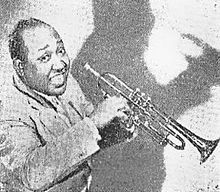
Daily Dose Of Jazz…
Bobby Martin was born on May 15, 1903. He played trumpet as a child with June Clark and Sonny Greer. By 1925 at the age of 22 he was in New York City playing and recording with Sam Wooding, as well as touring Europe through 1931.
From 1932 to 1936 he played abroad with Willie Lewis, and formed his own band after returning home in 1937. His quartet held an extended gig at the Palace in Greenwich VillageYork with pianist Richard Edwards, drummer Ural Dean, and guitarist Samuel Steede. This era of Martin’s life, as is much of his life, is poorly documented, however, because during a tour of The Netherlands at the Mephisto Club in Rotterdam, his entire book of arrangements was burned in a club fire.
Bobby continued to tour Europe into the early Forties, then held residencies in New York City and New Jersey. He opened his own club briefly in the decade as well.
He married vocalist Thelma Minor, but then left the music industry in 1944. Not much is known of him after this time, however, he never recorded as a leader and transitioned in March 1983.
More Posts: bandleader,history,instrumental,jazz,music,trumpet
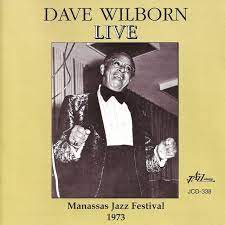
Daily Dose Of Jazz…
David Buckley Wilborn was born April 11, 1904 in Springfield, Ohio, on April 11, 1904. He started on piano at the age of 12 but switched to banjo soon after. He played with Cecil and Lloyd Scott in 1922, then joined William McKinney’s Synco Septet, which became the Cotton Pickers soon after. He sang and played banjo for the group until its dissolution in 1934, and when it reformed a short time later he remained in the group until 1937.
After 1937, Dave worked as a bandleader until 1950, after which he left full-time performance. When David Hutson formed the New McKinney’s Cotton Pickers, Wilborn also played in this ensemble. He sang and played on their albums New McKinney’s Cotton Pickers released in 1972 and their 1973 You’re Driving Me Crazy.
Banjoist and vocalist Dave Wilborn, who recorded with Louis Armstrong in 1928, transitioned during a performance in Detroit, Michigan on April 25, 1982.




